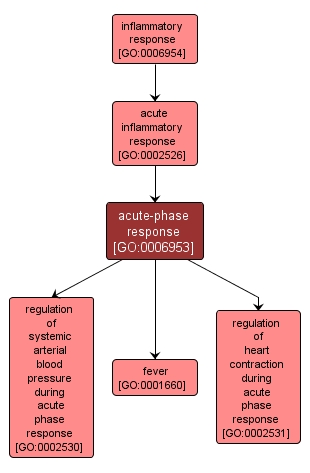GO TERM SUMMARY
|
| Name: |
acute-phase response |
| Acc: |
GO:0006953 |
| Aspect: |
Biological Process |
| Desc: |
Process involving non-antibody proteins whose concentrations in the plasma increase in response to infection or injury of homeothermic animals. |
|

|
INTERACTIVE GO GRAPH
|














